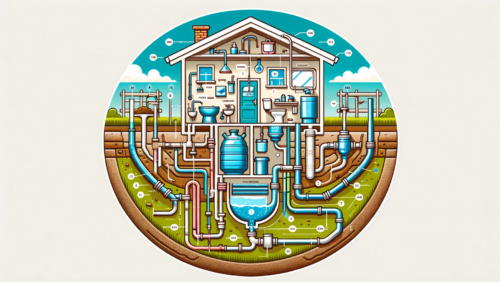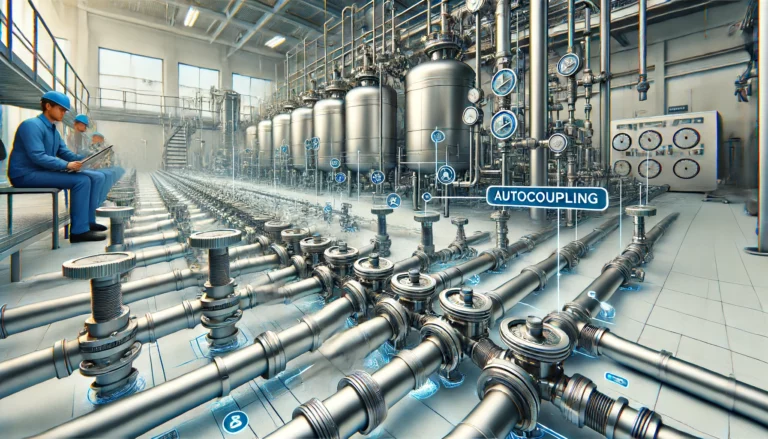Key Signs Your Septic Pump Needs Repair or Replacement
Understanding the Function of Your Septic System
The septic system plays a crucial role in every home as it helps manage waste efficiently. To understand how your septic pump works, you first need to grasp the functionality of your entire septic system. Essentially, the system comprises a septic tank and drain field, or leach field. Once you flush the toilet or drain water from sinks and showers, the wastewater flows into the septic tank where solid material settles at the bottom. The remaining water then moves to the drain field for further processing. The septage in the tank is broken down by bacteria into sludge and scum. These layers continue to accumulate over time and if not pumped out regularly, they may overflow and cause blockages in your drainage system. This is where your seic pump comes into play. It pumps out these layers from your tank to prevent overflow problems and maintain efficiency in your drainage system. It’s important therefore to ensure that this pump is always in working condition so as not to interfere with this critical process of waste management in your home. Regular maintenance is necessary not only for efficient functioning but also for early detection of any potential issues that may require repair or replacement. Neglecting these signs could lead to grave problems such as sewage backups or damage to your entire septic system which could be quite costly to fix.

The Importance of Regular Maintenance for Your Pumping System
One of the most prominent signs that your septic pump may need repair or replacement is if you start noticing foul odors coming from your drains or around the septic tank area. This could indicate that waste isn’t being properly processed and pumped out, leading to a build-up of sewage in your system. In addition, if you hear strange noises such as gurgling sounds coming from your plumbing system, this should be a cause for concern. These noises could be evidence of a struggling pump trying to function despite encountering some difficulties. Another signpost that points towards potential issues with your seic pump is sluggish draining or flushing in your home’s sinks, showers, and toilets. If water takes longer than usual to drain away or if the toilet doesn’t flush properly, it could mean that the pump isn’t effectively moving waste from the tank into the drain field. Furthermore, if you observe any wastewater pooling on the ground surface near your seic tank or field lines, it shows that the waste is not being transported efficiently due to pump failure. Unusually lush grass around your drain field can also be an indication of a failing pump. This happens when overflow from a failing system triggers excessive nutrient supply to the surrounding vegetation. It’s crucial not to ignore these signs as they are clear indications that something is amiss with your septic pumping system. Proactive action like immediate inspection and repair not only safeguards you from more serious future problems but also saves money by averting potential full system replacements. So instead of waiting for complete breakdowns, be vigilant and take note of these signs for prompt action to keep your septic system working optimally at all times.
Unpleasant Odors: A Clear Indication of Septic Troubles
When it comes to septic troubles, one of the most glaring indicators is the presence of unpleasant odors. It’s not uncommon to encounter a foul smell coming from your drains or around the septic tank area. This often signifies that waste isn’t being correctly processed and pumped out, leading to a build-up of sewage in your system. Therefore, if you start noticing such smells around your home, it’s time to investigate and determine whether your septic pump needs repair or replacement. Moreover, another telltale sign of a malfunctioning pump is strange sounds emanating from your plumbing system. You might hear gurgling noises or other unusual sounds which could be attributed to a struggling pump trying to function despite some difficulties. These noises aren’t just random – they are symptomatic of underlying issues within your system that need immediate attention. It’s important not to overlook these auditory signs as they offer key insights into the health of your seic pump. Besides foul odors and peculiar noises, a sluggish draining system can also hint at problems with your septic pump. If water takes longer than usual to drain away in sinks, showers or toilets, or if wastewater starts pooling on the ground surface near your septic tank or field lines, it suggests that the pump isn’t effectively moving waste from the tank into the drain field. It also signals an inability of the pump to efficiently transport waste due to possible failure. Keep in mind that these signs point towards serious issues with your pumping system and warrant immediate inspection and repairs where necessary. Remember, prompt action can save you from more grave future problems while also saving money by preventing potential full system replacements.
Backups in Plumbing: An Alarming Sign
The presence of backups in your plumbing system is another alarming sign that indicates possible problems with your septic pump. This issue can occur when the pump fails to effectively move waste out of the tank and into the drain field, causing a backup of wastewater into your home’s plumbing system. You might notice this problem when you see wastewater backing up into sinks, toilets, or bathtubs, which is an uncomfortable and unsanitary situation. Signs of septic backups aren’t limited to just visible wastewater; there are other subtle indications too. For instance, if you observe water around the base of your toilets or hear bubbling sounds when flushing, it could signify a backup. Similarly, slow draining across multiple fixtures in your home may also be a result of backed-up waste due to a faulty septic pump. It’s crucial not to ignore these signs as they highlight an urgent need for pump repair or replacement. However, keep in mind that while these symptoms might point towards issues with your septic pump, they could also indicate other problems with your septic system as a whole. Either way, these signs should never be taken lightly as they can lead to severe damage if left unaddressed. Reach out to a professional right away for inspection and necessary repairs before things escalate further. Remember: acting promptly upon noticing these warning signs may help prevent costly full-system replacements and ensure the longevity of your seic system.
Soggy Soil in Drain Field: A Potential Problem Indicator
A noticeable indicator that your seic pump may need repair or replacement is the presence of soggy soil in your drain field. This issue typically arises when the septic pump fails to efficiently process and clear out wastewater, causing it to overflow and saturate the ground around the drain field. As a result, you might notice unusually moist or waterlogged soil in this area which can be quite conspicuous, especially during dry weather conditions. Another signpost pointing towards this problem is unusually lush or green grass over your septic system. Though it may seem like a positive at first glance, it’s actually an indication of excessive moisture due to a failing septic pump. Essentially, when wastewater overflows from the tank into the drain field, it acts as a fertilizer for grass causing it to grow more vibrantly than usual. Therefore, if you notice such discrepancies in your lawn’s growth pattern, it would be wise to inspect your septic system immediately. Moreover, foul odors emanating from your drain field area should not be overlooked either. These unpleasant smells occur when unprocessed waste water saturates the soil and starts decomposing on the surface. This can lead to not only an unsightly yard but also health hazards due to exposure to untreated sewage waste. Therefore, if you come across any of these signs – saturated soil, unusually lush grass or foul odors – don’t delay in contacting a professional for immediate inspection and necessary repairs or replacements of your septic pump. Remember that timely action can save you from potential health risks and unnecessary financial burdens down the road.
Overly Green Lawn Around the Drain field: Hidden Implications
An overly lush and verdant lawn over your septic system’s drain field might seem like a gardener’s dream come true, but it’s often a red flag signaling potential septic pump issues. Just as we discussed earlier, when the septic system fails to process wastewater effectively, it can overflow into the drain field. This wastewater is rich in nutrients which act as an unexpected fertilizer for surrounding grass. Consequently, you may notice that your lawn is unusually green or growing more rapidly than normal around this area. Furthermore, this greenery isn’t confined to just grass. If there are any plants or shrubs near your septic system, they too may start flourishing due to the nutrient boost from the overflowing wastewater. While these plants may look healthy and vibrant on the surface, their growth is symptomatic of a deeper issue within your septic pump. Essentially, if you notice any form of accelerated plant growth around your drain field, that should be a clear signpost indicating that something isn’t right with your septic system. So remember, don’t let the deceptive beauty of an overly green lawn distract you from potential problems brewing beneath the surface. A flourishing garden could very well be masking a failing seic pump that needs urgent attention. Therefore, if you spot such inconsistencies in vegetation around your septic system’s drain field, get in touch with a professional immediately for thorough inspection and necessary repairs or replacements. By doing so promptly, you can prevent further damage to not only your property but also avoid potential health risks associated with untreated sewage water exposure.
Slow Drains and Gurgling Sounds: Warning Signals
Another telltale sign that your septic pump may be in need of repair or replacement is slow draining sinks, tubs, and toilets accompanied by strange gurgling noises. These warning signs should not be brushed aside as just minor plumbing issues. They could indicate a major problem with your septic system which needs immediate attention. When you observe that water takes an unusually long time to drain from your sinks or tubs, it’s often a signal that the septic tank is full and the pump isn’t able to move wastewater out efficiently. Similarly, toilets that flush slowly or not at all can also point towards a struggling septic pump. The gurgling sounds you hear are usually caused by trapped air escaping upwards through the plumbing system as it struggles against the pressure of backed-up wastewater. This is another clear indication of a compromised septic pump. These symptoms should prompt immediate action because ignoring them will only lead to bigger problems down the line. Remember, slow drains and gurgling sounds are more than just minor inconveniences; they’re potential signposts signaling significant issues with your septic system. So, if these symptoms appear in your home, don’t delay calling in professional help for an inspection and possibly necessary repairs or replacements to your septic pump system.
An Increase in Sewage Backup Events: Urgent Attention Required
When you start experiencing frequent sewer backups in your home, it’s a definite red flag that your septic pump may need urgent repair or replacement. If you notice sewage backing up into the drains in your house, especially the lower level drains, this is not something to ignore. This indicates that the waste which is supposed to be pumped out into your septic tank isn’t making it there and instead is making its way back into your home. The problem might be due to a malfunctioning septic pump that is unable to keep up with the wastewater flow from your home. Furthermore, if these backup events are accompanied by foul odors, then it’s even more critical to get professional help immediately. Sewage has a distinctive smell and when it starts coming back up through the drains, you will know right away. Not only does this create an unpleasant living environment, but it also poses potential health risks for anyone residing in the house. The stench of sewage can be indicative of harmful bacteria and pathogens present in wastewater which can lead to serious illnesses if left unchecked. Proactive action is necessary at this point because an increase in sewage backups is not just an annoyance—it’s a major warning sign that there could be serious issues with your septic system. It’s important to note that these problems won’t just go away on their own; they require immediate attention from professionals who have experience dealing with septic systems and pumps. So don’t procrastinate when these signs show up—call in expert help as soon as possible for an inspection and potential repairs or replacements of your septic pump system.
Noticing an Unexpected Increase in Water Bills
Another telltale sign that your septic pump might need repair or replacement is an unexpected spike in your water bills. If you notice a significant increase in your water usage that can’t be attributed to any changes in your household activities, it might mean that your septic pump isn’t working as efficiently as it should. A malfunctioning pump might need to run more often or for longer periods of time, which can lead to increased water usage and higher bills. Additionally, the issue may not lie with the pump itself but with the system’s pipes or tanks which could have leaks due to wear and tear or damage. These leaks not only waste water but also make it harder for your septic system to properly process waste, leading to further complications down the line. This increased workload on your septic pump can cause it to work overtime, thereby using more water. So, if you notice an inexplicable rise in your water bill, don’t just shrug it off as a random occurrence. It could very well be a signal that something is wrong with your septic system. Make sure you get in touch with a professional who can inspect and diagnose any potential issues with your septic pump promptly. It’s always better to address these problems sooner rather than later when they become larger and potentially more costly issues.
When is it Necessary to Consider a System Replacement?
One of the pivotal questions homeowners with septic systems often find themselves grappling with is, when is it necessary to consider a system replacement? While repairs can be effective in fixing minor problems, there comes a time when your septic pump may simply be past its prime and need replacing. This usually happens if the septic pump has been in use for a long duration. Most septic pumps are designed to last between 20 to 25 years with regular maintenance. However, factors such as excessive usage, neglect of routine checks, or consistent exposure to harsh conditions could significantly reduce this lifespan. Therefore, if your pump is nearing or has surpassed this age bracket and you’re experiencing frequent issues despite regular repairs, it might be time for a replacement. Additionally, if the repair costs are becoming increasingly expensive and frequent, you should also consider replacing your system. Sometimes the cost of constant fixes can exceed the cost of getting a new one installed. Moreover, constantly repairing an aging or faulty system can be like putting a band-aid on a wound that needs stitches; it’s not addressing the root problem and will just lead to more complications down the line. So rather than pouring money into a failing system, investing in a brand-new installation could save you more money and headaches in the long run.


